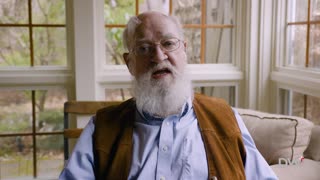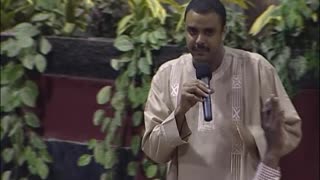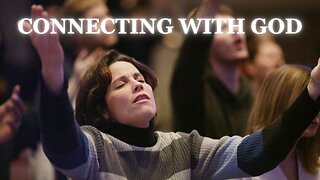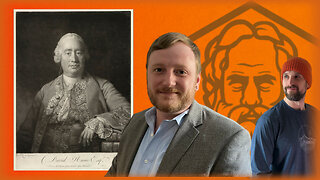William S. Hatcher - Moral and Spiritual Development
Navigating the Journey of Inner Transformation and Social Harmony!
William S. Hatcher's discussion deeply explored the juxtaposition of spiritual enlightenment against the often materialistically oriented backdrop of human history. Through his Bahá'í-informed philosophical lens, he endeavored to dissect the essence of individual and societal progression, centering on the development of authentic, spiritually significant lives over the pursuit of material or egotistical gains. He advocated for a profound understanding of self-worth and value derived not from worldly achievements or the acquisition of power but from the divine endowments of the soul.
Hatcher's examination of true religion highlighted its nature as inherently mystical, prioritizing the formation of a genuine connection with the divine. It was articulated that this divine connection supersedes the documentation of beliefs or ritual practices. Delving deeper, he emphasized that this connection emerges not from obligatory adherence to laws but from a profound sense of love and voluntary approach to one's spiritual journey.
Focusing on personal effort, Hatcher reminded listeners that spiritual attainment and recognition of divine teachings are not passive accomplishments but are achieved through active, consistent, and enlightened striving. This stance refutes passive reception of God's grace, promoting a dynamic process of pursuit and discovery that is both reflective and meditative.
Discussing power and love, he contended that historical human suffering results from an incessant craving for power which begets injustice and conflict. He put forth a paradigm-shifting approach where love supplants power as the primary pursuit. This shift necessitates a practical reorientation: the harnessing of individual power towards establishing justice, thereby creating fertile grounds for love to prosper and contribute to communal unity.
Further, in analyzing the nature of the human soul, Hatcher differentiated between hereditary physical attributes and the divine conferment of the soul's capacities. The soul, he proposed, possesses an intrinsic worth given by God, individual to each person, and distinct from any external measures of success or societal accolades. Recognizing this worth becomes the underpinning of self-awareness and spiritual confidence that each individual brings to the collective human narrative.
Moreover, Hatcher dissected the material versus spiritual valuations prevalent in society. He pointed out that whereas material possessions are lessened through sharing, thus driving competition, spiritual qualities such as love are amplified and multiplied through sharing, advocating for a re-balancing of value systems to reflect the preeminence of spiritual attributes.
Lastly, Hatcher underscored the infallibility of the Universal House of Justice as being instrumental to the Bahá'í vision of society. As the faith suggests, the House of Justice is divinely guided, preventing individual corruption and ensuring that spiritual virtues remain paramount within the ever-evolving fabric of the Bahá'í community and its influence on the world.
Throughout the discussion, Hatcher implored listeners to translate these spiritual doctrines into lived realities, championing a movement away from ego-driven leadership toward a future society marked by justice, authentic relationships, and divine love. His call to action is not just for understanding but for the practical embodiment of these principles in daily life, fostering a community and society that genuinely reflect these profound spiritual insights.
-
 1:12:23
1:12:23
Siyamak
5 months agoWilliam S. Hatcher - Love, Power, and Justice
41 -
 1:39:27
1:39:27
Rolling With You
2 months agoAboutness, Secular vs. Religious Ethics, & Plato’s Aviary | Dr. Daniel Dennett | EP 438
622 -
 1:00:17
1:00:17
Dag Heward-Mills Leaders' Services
2 months agoA High Priest With Feelings | Leaders' Service | Dag Heward-Mills
2 -
 18:42
18:42
Campbellfamily07
3 months ago"Saintly Insights: Navigating Faith's Race, Divine Discipline, and God's Kingdom & Grace"
74 -
 39:59
39:59
StrengthforTodaywithDrJ
4 months agoFrom Rituals to Reverence: Rediscovering the Heart of Worship 🙏
36 -
 11:25
11:25
Campbellfamily07
3 months ago"Judgment and Humility: Learning from Paul's Wisdom (1 Corinthians 4:1-5)
64 -
 2:03:21
2:03:21
Crystal Rivers
3 months ago $0.02 earnedCultivating Spiritual Disciplines. Keys to Personal Transformation C R | Open Book | Mar 12, 2024
25 -
 8:56
8:56
Samuel Devis
1 month agoHumean Morality: Benjamin Watkins Examines Hume's Ethical Insights
4 -
 2:58:53
2:58:53
Cave Adullam Meetings
2 months ago $0.06 earnedEmbracing Divine Authority and Emracing Divine Authority | May 4, 2024 | PHB
36 -
 3:55
3:55
Bible Study | VerseVisionaries.com
2 months agoHow Can We Find Life, Righteousness, and Honor? Proverbs 21:21
49